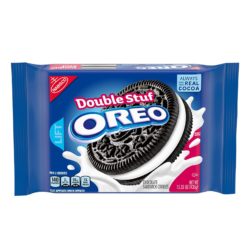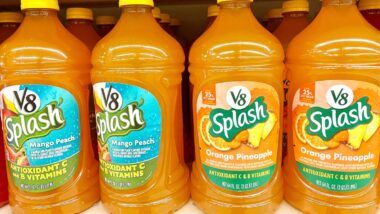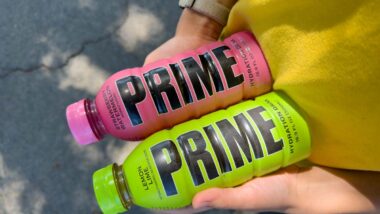Top Class Actions’s website and social media posts use affiliate links. If you make a purchase using such links, we may receive a commission, but it will not result in any additional charges to you. Please review our Affiliate Link Disclosure for more information.
A New York federal judge has dismissed a class action lawsuit filed by consumers against the manufacturer of Oreo cookies, Mondelez Global LLC.
The class action alleged that Mondelez had misled consumers by labeling Oreo cookies as “always made with real cocoa” when the cocoa used in Oreos is “highly processed.” U.S. District Judge Edward R. Korman recently determined that the plaintiffs’ failure to challenge the claim that Oreo cookies are in fact made with cocoa, was “fatal to their case.”
Judge Korman found that the plaintiffs in this suit failed to provide proof that Mondelez had misrepresented Oreo ingredients on the packaging of the cookies. The judge said that the cookies are indeed made with real cocoa, even if that cocoa is diluted with alkali. In the dismissal order, Judge Korman explained that Mondelez’s statements were not misleading.
“Plaintiffs do not dispute that the challenged products are in fact made with cocoa,” Judge Korman said. “It is not misleading for the defendant to represent that its Oreos are made with ‘real’ cocoa when they in fact contain cocoa.”
The Oreo cookies class action lawsuit was filed in April 2019 by consumers from 12 different states including Idaho, Texas, New York, Colorado, and California. The consumers argued that Oreo cookies are made with cocoa that had been “adulterated, processed with alkali, or modified from its real nature.” They claimed that this fact made the label regarding “real” cocoa misleading. A consumer would allegedly not expect “real” cocoa to be adulterated with alkali unless a caveat was included.
While the alkali process Mondelez’s cocoa goes through can be used to make the product milder and less acidic, the plaintiffs state that commercially available non-alkali cocoa has health benefits that consumers expect in “real” cocoa. They also claim that the cookies were sold at a premium because of this label.
“The representation ‘real cocoa’ is false, deceptive and misleading because consumers expect ‘real cocoa’ to indicate a higher quality cocoa than had the ingredient merely been accurately identified as ‘cocoa,’” the plaintiffs wrote.
The judge disagreed with these arguments. Judge Korman cited several other cases in which the court has reaffirmed that “a representation that a food is ‘made with’ a ‘real’ ingredient does not necessarily mislead from the truth that the advertised ingredient may have been combined with another.”
The Class had previously claimed that Mondelez had committed fraud, negligence, misrepresentation, and breach or warranty, but those claims have since been withdrawn. The plaintiffs also alleged that Mondelez’s actions constitute unjust enrichment, but the judge stated in his order that this claim was based on the same faulty arguments as those regarding the misleading labels.
According to the judge’s order, the plaintiffs’ case hung on a claim that the cocoa used in Oreo cookies isn’t in fact “real” due to the alkali process, not that too little cocoa had been used. The judge argues that, because there isn’t a modifier like “only” or “exclusively” before the phrase “real cocoa,” consumers wouldn’t expect there to be no alkali-treated cocoa in the Oreo ingredients.
The plaintiffs were seeking to amend their claims, but the judge denied their request in his recent order. According to Judge Korman, an attempt to amend would be “futile” because there is a “substantive problem” with the claims that couldn’t be helped with further amendments.
With their class action lawsuit, the plaintiffs were seeking damages as well as injunctive relief. They further sought to establish a nationwide Class of affected consumers.
Suits regarding claims that ingredients are “real” are nothing new. For example, consumers brought a suit against Kellogg Co. in 2018 regarding the company’s claims that Cheez-Its are “Made With Whole Grain.”
That class action lawsuit successfully argued that Kellogg’s statement was misleading because it implies that there is “more whole grain than white flour in the crackers,” as the judge wrote. The difference, according to Judge Korman, is that the whole grain is considered a primary ingredient of the crackers. It would follow that cocoa should not be considered a primary ingredient of Oreos cookies.
Since the Kellogg case, courts have consistently found that claims that a food is made with real ingredients aren’t negated if those ingredients are mixed with others. For example, in another case cited by Judge Korman, a judge found that claims that packaged mashed potatoes are “Made With Real Butter” doesn’t mean that consumers are likely to think there are no “additional fats.”
If you purchased Oreo cookies and feel you were misled by the packaging, comment about your experience below.
The consumers in this class action lawsuit are represented by Michael Robert Reese and George Volney Granade II of Reese LLP.
The Oreo Cookies Ingredients Class Action Lawsuit is Harris, et al. v. Mondelez Global LLC, Case No. 19-cv-2249, in the U.S. District Court for the Eastern District of New York.
Read About More Class Action Lawsuits & Class Action Settlements:
Senate Advances Bill Allowing China Liability in Coronavirus Outbreak Lawsuits
How Do I File a Lemon Law Claim?
ATTORNEY ADVERTISING
Top Class Actions is a Proud Member of the American Bar Association
LEGAL INFORMATION IS NOT LEGAL ADVICE
Top Class Actions Legal Statement
©2008 – 2024 Top Class Actions® LLC
Various Trademarks held by their respective owners
This website is not intended for viewing or usage by European Union citizens.

















62 thoughts onJudge Tosses Oreo Cookies Ingredients Class Action Lawsuit
I was wondering if you can sue for double stuffed not actually being double the regular oreo. I did some scientific research and proved it using the
scientific method.
add me